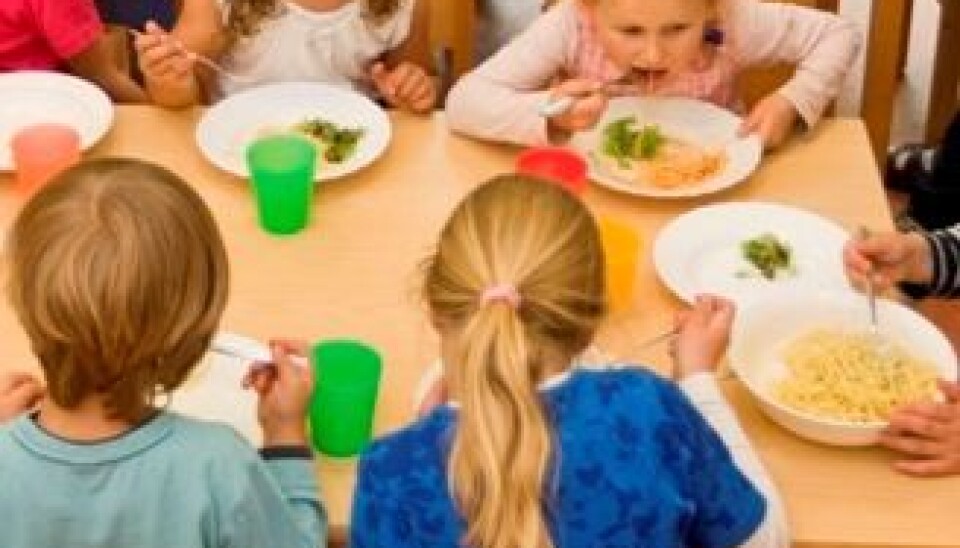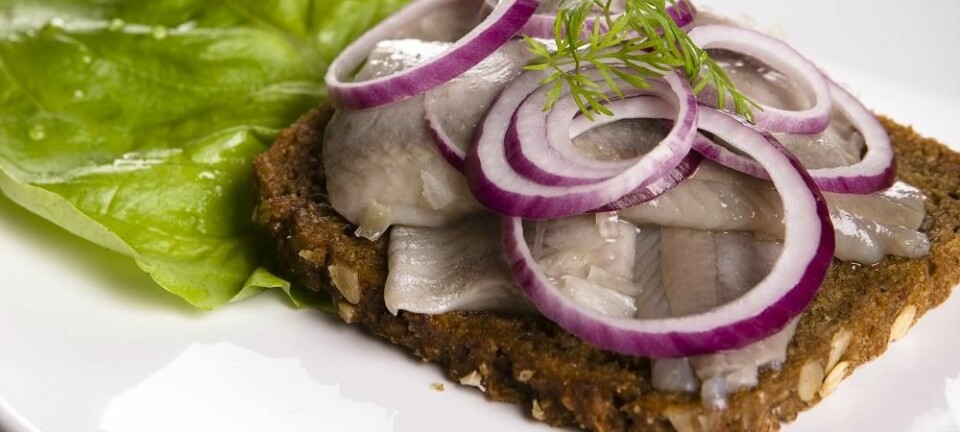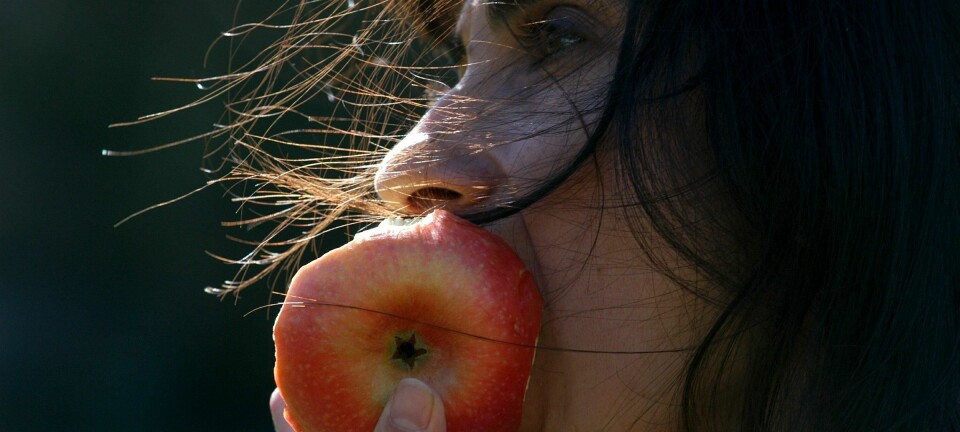An article from University of Oslo

Healthier food for day care children
The food now served in kindergartens is healthier than it used to be. Children are given fewer cakes and sweet drinks, and more of whole grain bread and vegetables.
Denne artikkelen er over ti år gammel og kan inneholde utdatert informasjon.
This emerges from the Norwegian Directorate of Health's new report Mealtimes, physical activity and environmental health care in kindergarten.
The report summarises the results from a national survey conducted last year, and is based on responses from 1,375 managers and 1,100 educational supervisors in private and public kindergartens.
The study looked into food and drink, and how mealtimes are organised in Norwegian kindergartens. Questions about physical activities and environmental health care were also included.
The aim was to learn more about the meals in kindergartens, and what is served at various events and celebrations.
Healthier than in 2005

The survey shows that the food served to day care children mostly falls within government recommendations. Food quality must be a central factor in the efforts to improve day care services.
“We are very happy to see that the food has become healthier,” says Lene Frost Andersen. She is a professor in the Department of Nutrition at the University of Oslo, who headed the research.
In 2005, the researchers conducted a similar study. These results indicated that kindergartens didn't serve enough vegetables and whole grain bread. Back then kindergartens served whole milk, high fat and sugary food and drinks at special events.
The 2011 survey shows clear improvements.
According to Frost Andersen, their most positive finding is that the children are now offered more vegetables and whole grain bread.
As many as 89 percent of the kindergartens reported that they offered fruit and berries five days a week, while 36 percent reported serving vegetables with the same frequency.
Some 24 percent of the kindergartens baked whole grain bread and rolls at least once a week.
Must increase the daily provision of vegetables
Despite the generally positive results, Frost Andersen hopes to continue to see improvements in a number of areas. She wants more kindergartens to increase the amount of whole grain breads they serve, as well as reduce the use of whole milk and butter or margarine blends.
Though kindergartens serve more vegetables than they did in 2005, increasing the amount of vegetables served remains the greatest challenge.
She believes that kindergartens have a unique opportunity to influence children positively, since research shows that food habits are formed early.
Frost Andersen says it is of crucial importance that more vegetables is introduced in children's diets while they are young. By contributing knowledge and serving vegetables, kindergartens can help children increase their vegetable intake, regardless of parental purchasing power or knowledge about nutrition.
Kindergartens are unique learning arenas outside the home, and play an important function in health promotion and prevention.
"Being served healthy food in kindergarten is especially important for the children whose families are not very aware of the importance of nutrition and lifestyle choices," says Frost Andersen.
Fewer sweet celebrations
Birthdays are often synonymous with cream cakes and soft drinks. Nearly half of Norwegian kindergartens have celebrations and events two or three times a month.
Generally, the kindergartens have the primary responsibility for the food served at a celebration, though some share this responsibility with parents.
"It is great to see that celebrations now have healthier profiles than in 2005! For example, a significantly higher proportion of kindergartens served fruit at such events, as compared to seven years ago,” says Frost Andersen.
Fourteen percent of kindergartens also served vegetables and dip during celebrations. Water and milk are the most common options for drinks.
However, though the results generally were positive, the survey shows that 31 percent of the kindergartens still serve ice cream, biscuits, cakes, muffins and jelly for celebrations and events. Frost Andersen would like to see much less of this.
"It is not a problem that ice cream, biscuits, cakes and other sweets are served once in a while, but these should not be the most frequent foods served for these events," she says.
Goal-oriented foundation for food choices gives results
Goal-oriented work pays off.
Kindergartens that included food and meals in their annual plans or guidelines were much more likely to serve fresh vegetables daily, compared to those kindergartens without such a platform. The former were also less likely to serve food that was sweet or lacking nutritional value.
Frost Andersen suggests that it is important that the kindergartens work on mealtimes and food services.
Including food services in annual plans will make the work less vulnerable and less dependent on particularly committed staff members who feel strongly about healthy food and positive mealtimes.
"There is a lot that remains to be done, but our recent research results show that we are headed in the right direction," concludes Frost Andersen.
-----------------------------------------------------
Read this article in Norwegian at forskning.no
































